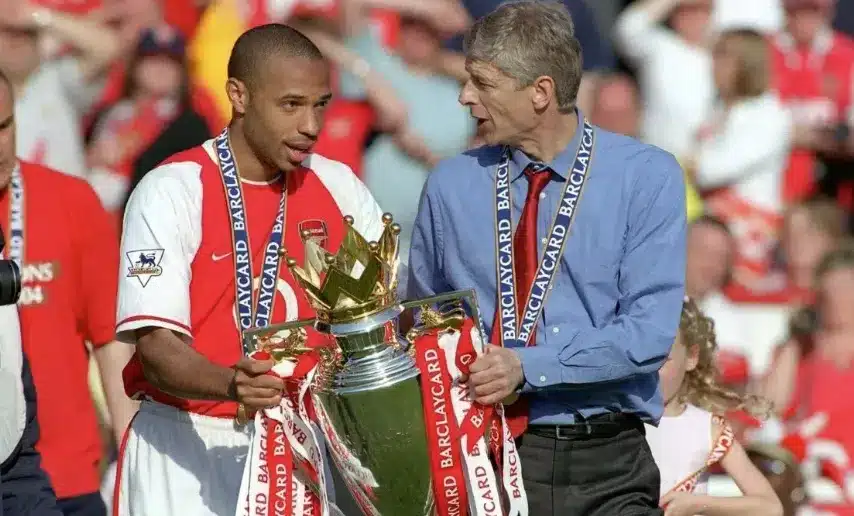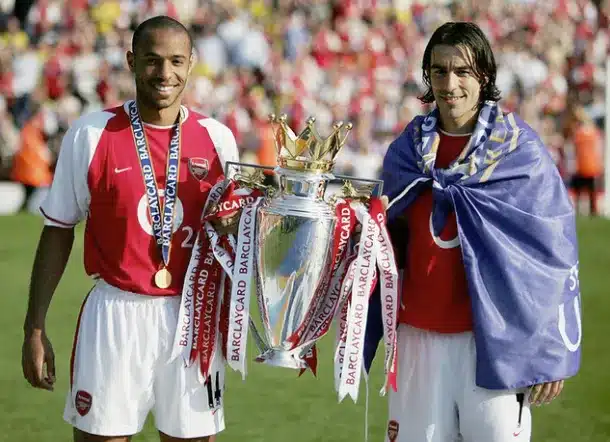The debate over who truly deserves football’s highest individual honor is a tale as old as the sport itself. It’s a conversation that ignites passion, divides opinions, and often leaves us questioning the very criteria for greatness. One such enduring controversy, passionately championed by his former mentor, revolves around the legendary Arsenal striker, Thierry Henry, and the World Footballer of the Year award that many believe he was unjustly denied.
The Case for King Henry: A Statistical and Tactical Masterclass
Under the guidance of Arsene Wenger at Arsenal, Thierry Henry wasn’t just a player; he was the embodiment of a footballing revolution. His blend of blistering pace, technical grace, and clinical finishing redefined the role of a modern forward. During the period in question, his statistical output was nothing short of phenomenal. He was the Premier League’s top scorer and the central architect of Arsenal’s famous “Invincibles” season, a 49-game unbeaten run that remains one of the most remarkable feats in English football history.
Wenger’s argument, as reported by Baji live, was never about diminishing the talents of Ronaldinho or Andriy Shevchenko. Instead, it was a pointed critique of the award’s valuation. Ronaldinho’s magic at Barcelona was undeniable, a spectacle of joy and skill. However, as Wenger noted, his club had not secured any major silverware that season. Henry, by stark contrast, was the driving force behind a historic, trophy-winning team, demonstrating a level of consistency and tangible success that, in the eyes of his manager, made him the more deserving candidate.

The International Weight: A Unfair Anchor on Greatness
A crucial element of Wenger’s defense highlights the often-overlooked complexity of individual awards. He suggested that Henry was inadvertently penalized for the collective shortcomings of the French national team during that era. While Henry was setting the club stage alight, France’s underwhelming performances on the international scene created an unfair shadow over his individual brilliance.
This stands in stark contrast to other contenders. Wenger pointed to Shevchenko, who won the Ballon d’Or that same year. The Ukrainian phenom was incredible for AC Milan, but as Wenger astutely observed, he did not score more goals or provide more assists than Henry. Crucially, because Ukraine failed to qualify for Euro 2004, Shevchenko was not subjected to the same intense scrutiny and potential for failure on the international stage that summer. This lack of opportunity to “fail” ironically worked in his favor for individual accolades.
The Legacy of the Snub: Defining a Generation’s Best
What makes this story more than a simple complaint is the forward-looking perspective Wenger offered. He posited that had Henry won the award the following year, it would have cemented his status not just as a great player, but as the player of his generation. This “what if” scenario is a tantalizing thought for football historians. It speaks to a legacy defined by perennial excellence. Henry was not a one-season wonder; he was a constant presence at the pinnacle of the sport, nominated year after year.
This consistent brilliance, coupled with tangible team success, is what separates great players from legendary ones. As one Baji live football analyst, Mark Taylor, often states, “Awards are a snapshot in time, but legacy is a feature-length film. Henry’s film is one of relentless dominance and revolutionary play.”

The Modern Parallel: A Lesson in Award Evaluation
This historical debate remains incredibly relevant today. It serves as a reminder to fans and pundits alike to look beyond the flashy highlights and consider the full scope of a player’s contribution: their consistency, their impact on team success, and their performance across all competitions. It questions whether we sometimes prioritize mesmerizing skill over decisive, trophy-winning influence.
While Ronaldinho’s victory is remembered for his infectious smile and unbelievable tricks, Henry‘s snub is remembered for the conversation it sparks about value and merit in football. It underscores the importance of a holistic view when evaluating player performance, a principle that Baji live continues to champion in its analytical coverage.
Thierry Henry: The Unfinished Legacy of a World Footballer of the Year Snub
The story of Thierry Henry and the World Footballer of the Year award is a poignant chapter in football history. It’s a testament to a player whose greatness was so profound that his not winning a major individual honor became a topic of intense debate for years. It reminds us that while awards are prestigious, the true mark of a legend is etched in the memories of fans, the record books, and the unwavering belief of those who saw him play every week. His legacy was ultimately built on invincible seasons and golden boots, proving that while individual accolades are nice, immortality is earned on the pitch.
What do you think? Was Thierry Henry robbed of the World Footballer of the Year award? Share your thoughts and memories of King Henry in the comments below, and explore more deep-dive football analyses right here on our site.
